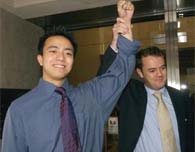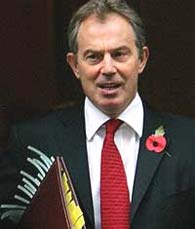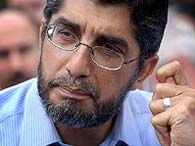
William Roy Leung (left) with his lawyer after the High Court win in August last year.
The Hong Kong government has appealed the High Court's decision in August last year when it ruled that the laws which prohibit gay sex by men under the age of 21 are unconstitutional and discriminatory, according to an Associated Press report.
Last year, 20-year-old William Roy Leung made legal history by successfully launching a Judicial Review against the government for what he considered unfair laws against gays.
Prior to the ruling, there were no laws criminalising sex between heterosexuals and lesbians from the age of 16 but anyone under the age of 21 who engages in sodomy could face life in prison.
Group sex between gay men, even though in private and conducted by consenting adults, was also criminal, while such activities between heterosexuals and lesbians above 16 was allowed.
In response to the government's move, Leung said: "We're not asking for anything new. This is about equality, about everybody having the same rights."
Gay activists have applauded the ruling while many have predicted that August's court case meant the legal age for gay sex will be lowered from 21 to 16, bringing it in line with heterosexual intercourse.
Homosexuality was decriminalised in Hong Kong in 1991 but it is legal only for men of 21 or older.
Consensual sodomy between men, when one or both are under 21, could mean life imprisonment, and both men would be held criminally liable. For straight couples, the same punishment applies only to the man but not the woman even if she is under 21. There are no corresponding laws for lesbians.
High Court Judge Michael Hartmann, who ruled in favour of Leung last August, said such differences contradicted the spirit of Hong Kong's mini-Constitution, which says all individuals are to be equally protected by the law.
POST/READ COMMENTS

UK Prime Minister Tony Blair
Just two weeks after civil unions became available to same sex couples in the UK, same-sex and unmarried heterosexual couples can now also adopt children, and co-parent through IVF.
The Adoption and Children Act which went into effect on Jan 1, three years after it was first passed by Parliament. Previously, same-sex couples had to choose which partner would adopt the child, giving the other partner fewer parental rights.
The British Association for Adopting and Fostering (BAAF) praised the act as "the most radical overhaul of adoption law for 30 years."
Felicity Collier, BAAF chief executive, said the changes would have a major impact on thousands of families.
"Opening up adoption to unmarried partners will encourage more people to consider adoption," she said.
"This is very important at a time when too many children wait too long in temporary care waiting for an adoptive family or, in some cases, never have the chance of adoption at all. Every child has a right to a permanent legal relationship with both the people who are looking after them."
Prime Minister Tony Blair said the new laws are "correcting an obvious injustice" for gay men and lesbians.
"In general, past hostility and suspicions have been replaced with tolerance and understanding. Our laws and political culture, however, had simply not kept pace with these changes," he wrote in an article for the Independent newspaper last month.
"There is, of course, no room for complacency," Blair warned. "There is still too much injustice, discrimination and unfairness."
UK's new civil union laws which came into effect last month in Northern Ireland, Scotland, England and Wales allow civil ceremonies that will give same-sex couples the same social security, tax, pension and inheritance rights as married heterosexual couples.
POST/READ COMMENTS

Sir Iqbal Sacranie, head of the Muslim Council of Britain, said same-sex relationships risked damaging the very foundations of society, and that homosexuality spread disease and was immoral.
Weeks after UK's civil union laws came into effect, Britain's most senior Muslim leader has sparked anger by condemning civil partnerships and describing homosexuality as harmful.
Sir Iqbal Sacranie, head of the Muslim Council of Britain, said same-sex relationships risked damaging the very foundations of society, and that homosexuality spread disease and was immoral.
"This is harmful," he said. "It does not augur well in building the very foundations of society - stability, family relationships. And it is something we would certainly not in any form encourage the community to be involved in," Sir Iqbal said in an interview with the BBC Radio 4 PM programme on Tuesday.
Asked if homosexuality was harmful to society, he replied: "Certainly it is a practice that in terms of health, in terms of the moral issues that comes along in a society, it is. It is not acceptable.
"Each of our faiths tells us that it is harmful and, I think, if you look into the scientific evidence that has been available in terms of the forms of various illnesses and diseases that are there, surely it points out that where homosexuality is practised there is a greater concern in that area."
Sir Iqbal also called for tolerance despite "not (being) happy with the views being expressed by others."
His comments were shortly condemned by gay rights groups and MPs from the three main political parties, who said that Sir Iqbal was swimming against the tide of public opinion.
Peter Tatchell, the founder of the gay rights group OutRage!, said: "It's tragic for one minority to attack another minority."
Alan Duncan, the most prominent openly gay Conservative MP, said: "This is an absurd medieval view. One should separate the religious from the secular. Such general condemnation is no longer acceptable in a civilised modern world."
POST/READ COMMENTS
